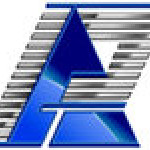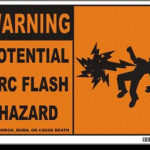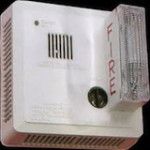04-22-2014 - Dispatcher Training Webinar - Online, Live
Training Provider: APT Corporate Training Services
Dates: TU Apr 22, WE Apr 23, TH Apr 24, TU Apr 29, WE Apr 30, TH May 01 from 12:00pm to 4:00pm ET
Location: Webinar, Live
 No Reviews
No Reviews
We're sorry, but registration for this event has ended
View Upcoming Dispatcher Training Webinar In Online, Live| TICKET TYPE | PRICE | QUANTITY |
|---|---|---|
|
One Workshop Ticket more info» | $995.00 | Registration Ended |
| Registration Ended | ||
Why Should You Take This Dispatcher Training webinar?
This Dispatcher Training webinar provides students with an overview of the electric power system, overhead and underground distribution facilities, protection concepts, consumption considerations, safety, and briefly discusses distribution planning, reliability and power quality.
Then the student learns about substation equipment that pertains to distribution such as regulators, reclosers, lightning arresters, and capacitor banks. Distribution overhead and underground facilities are covered next with attention to common equipment found within the power delivery system.
The student also gains a comprehensive understanding of the important aspects of modern electric power distribution systems. The key aspects of operating the distribution system and the typical problems encountered with delivering reliable power are covered in this course, including preventative maintenance, service configurations to avoid, industry best practices, and general operations procedures. Distribution systems planning and design is briefly discussed including software tools, load analysis, loss analysis, voltage and loss control, and equipment sizing.
Learning Outcomes:
- Explain all aspects of Electric Power Systems from generation to transmission, substations, distribution, consumption, control, and safety.
- Describe methods and procedures used to maximize electric service reliability and minimize system equipment downtime.
- List system design measures that can be taken to ensure distribution system reliability.
Benefits of Completing Training:
- Students learn valuable knowledge and skills in power delivery systems needed to expand and diversify their career opportunities in the power industry.
- Students obtain a working knowledge of the power system operations from a service reliability and troubleshooting perspective.
- Students become more efficient in analyzing power service problems and are able to provide guidance in repair and operating recommendations.
Prerequisites: There are no prerequisites for taking this course
Module 1 – Electrical Fundamentals:
In Electrical Fundamentals, students will begin by reviewing basic definitions, concepts, and formulas for voltage, current, power, and energy. Generation of single phase and 3-phase AC power systems is discussed along with delta and wye connections and electrical load phase relationships (lead and lag).
Various types of power generation and the power plants that support them are presented as well as power transmission methodologies, equipment, conductors, shielding, and insulators.
Module Objectives:
At the conclusion of this module, students will be able to define and describe the following terms and concepts:
- Voltage, Current, Power & Energy
- Electrical Load phase relationships (lead and lag)
- Ohm"s Law review
- Power equation review
- 3-Phase Delta and Wye connections
- Power Factor
- Voltage Drop and Limits
- Power Generation (fossil, nuclear, hydro, solar & wind)
- Transmission Concepts
- Conductor types and sizes
Module 2 – Substation Equipment:
Utility substations serve as nodes of power grids where system voltages and currents are stepped up or down depending on need for transport or delivery service to consumers. This module explains all the types of major high voltage equipment used in substations to perform their system functions.
Module Objectives:
At the conclusion of this module, students will be able to describe the following types of substation equipment:
- Transformers
- Regulators and by-pass switches
- Load Tap Changers (LTC)
- Circuit Breakers
- Reclosers
- Disconnect Switches
- Lightning Arrestors
- Electrical Bus Distribution Configurations
- Capacitor and Reactor Banks
- Control building equipment
Module 3 – Distribution and Consumption:
The concepts of various overhead and underground power distribution feeder networks are presented. Students learn about the principles of power delivery, consumption and the various types of meters and panels used in single and 3-Phase applications.
Module Objectives:
At the conclusion of this module, students will be able to describe and discuss the following types of distribution networks and power consumption concepts and equipment:
- Wye & Delta Distribution Lines
- Radial, Loop, and Network Configurations
- Distribution Transformers 1-Phase and 3-Phase
- Open-WYE, Open-Delta Transformer Banks
- Underground Equipment (cables, hardware, switches, risers)
- Load Balance
- Distribution Fuses & Sectionalizers
- Residential and Industrial services
- Basic Metering (1-Phase and 3-Phase Panels)
- Loads and Connections
Module 4 – Protection and Telecommunications:
The automatic clearing of power system faults on transmission lines, substation equipment, distribution facilities, etc. are controlled through system protective relays. The various types of relays, their operations, and results are explained in this module. The student gets an appreciation of how system protection helps maintain reliability, clearing electrical problems on the system and how protective relays interface with system control centers. A brief discussion of how telecommunications is used to provide monitoring and control is also introduced in this module.
Module Objectives:
At the conclusion of this module, students will be able to define and describe the following protection principals and types of telecommunications technologies present in the power industry:
- Power Faults, Fault current paths & Fault Locators
- Distribution Protection Schemes
- Breakers, Reclosers and Fuse Links
- Relay Control Circuits with CT"s and PT"s
- Differential Relays (Transformer and Bus)
- Transmission Protection Overview
- Coordination Principles
- Telecommunications (Fiber, Microwave, Power Line Carrier)
Module 5 – Electrical Safety:
Electrical safety is a key component in electric operations. This module discusses how electrical safety is viewed and applied in electric utilities. The same concepts apply to home electrical safety. This module provides the needed knowledge basics to working safely around high and low voltage electrical systems. Personal Protective Equipment (PPE) is discussed in great depth. Particular emphasis is placed on the why and how electrical grounding principles apply to safe operations.
Module Objectives:
At the conclusion of this module, students will be able to describe the following safety issues, requirements and considerations:
- Ground Potential Rise
- Conduction vs. Isolation Safety
- Touch & Step Potential
- Accidental Energization Scenarios
- Electrical Grounding Theory
- Single Point Grounding
- Dual Point With Personal Ground
- Trucks and Vehicles Grounding vs. Barricading
- Underground Procedures
- Grounding Equipment Testing
- Arc-Flash
- Personal Protection Equipment
Module 6 – Dispatch and Energy Control:
The U.S. electric power grid system is highly interconnected through an extensive system of transmission and distribution lines that are controlled at various control centers. This includes an in-depth look at Smart Grid concepts and operations. This module explains how this interdependency is structured through NERC and system reliability is monitored and controlled through SCADA on a 24/7 basis. More safety concepts are introduced with the discussion of proper switching and tagging procedures. Also presented is the role, responsibilities and operations of Dispatch Centers.
Module Objectives:
At the conclusion of this module, students will be able to describe the following topics:
- Supervisory Control & Data Acquisition (SCADA)
- System Analysis Monitoring and Control
- Distribution Switching
- Switching orders and approvals
- Coordination & Communications
- Dispatch & Service Centers
- Emergency Situations
- Outage Management
- Distribution Automation
| COURSE LOGISTICS | |
|---|---|
| Certificates | 1-3 days after course completion |
| Food | Snacks will be provided |
This course is conducted as a live instructor-led webinar. Further details will be provided to you prior to the course.
TU Apr 22, WE Apr 23, TH Apr 24, TU Apr 29, WE Apr 30, TH May 01 from 12:00pm to 4:00pm ET

This partner no longer posts classes on Zack Academy. For a complete list of classes, please visit our course catalog.
APT Corporate Training Services was founded in 1993 by CEO Steven W. Blume to offer electric power and telecommunications training. In 2003 Applied Professional Training became a Distance Education and Training Council accredited institution. APT has gained the reputation as being the premier technical training provider for the telecommunications and electric power industries, and recently added renewable energy training to its repertoire. APT not only offers professional certificates and college degrees, but also offers career-oriented courses designed to enhance employee knowledge, skills, and abilities and proctors industry certifications related to both current and emerging technologies.

Questions? 954-400-0595


